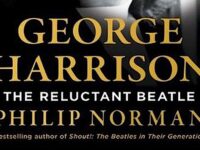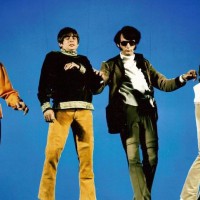I have been struck by how long the accolades have continued after the passing of Norman Lear. It made me realize that I too have a Lear story, tangential though it may be. I hadn’t thought about it in years, but I guess this would be the time to tell it.
Lear burst upon the scene in 1971 with a mid-season replacement series called All in the Family, a show so controversial that some CBS television affiliates were afraid to air it. In Des Moines, KRNT-TV initially buried it on Saturday afternoons. That’s not a criticism of Des Moines – larger markets were also wary of the program’s content.
Producer Norman Lear seemed to come out of nowhere with this hit show but he already had quite a bit of television and film experience. Among his most recent projects before All in the Family was a movie called Cold Turkey. It’s an unmemorable comedy about a small town that is determined to collectively give up smoking cigarettes in order to win a cash prize.
But Cold Turkey is memorable for me because it was shot in Iowa. Most scenes were filmed in Greenfield, a farm community about 60 miles southwest of Des Moines, where my grandparents then lived. I was in junior high in 1969, when the state was abuzz with news that a Hollywood movie was to be filmed in rural Iowa. Cold Turkey starred Dick Van Dyke, Bob Newhart, and Tom Poston. If this sounds like the cast of a television sitcom, you’re right. Some of the actors were already known for their small screen roles, and others would work with Lear in the coming years.
The story is told that Norman Lear decided that the town square of Greenfield, Iowa, had the perfect appearance for the movie he had in mind. It was better than any Hollywood set he could construct. Lear has laughingly recounted that when he first entered a Greenfield tavern one afternoon to talk with some locals about his idea, one man slid off his barstool and told him: “Ain’t nobody here gonna talk to you until you get a haircut!” Lear later said he would have given a lot to have that exact encounter on film. The residents of Greenfield had no idea who this Norman Lear was. To be fair, neither did anybody else at the time. Soon though – perhaps becoming collectively star struck – people warmed to the idea of a movie being made in their town.
My folks and I visited Greenfield often in the 1960s to see my mother’s parents, so we were eyewitnesses to the movie’s progress. I recall one weekend trip when the town square was brightly lit for a night shoot. Trailers of the stars were parked on the street just out of the cameras’ view. I hung around and was able to talk to a couple of the actors. I asked Dick Van Dyke why CBS had stopped airing re-runs of his show during their morning hours. He was nice and said he didn’t know. He signed an autograph for me.
Actually, Van Dyke was in a bit of a slump in 1969. After The Dick Van Dyke Show ended, he made a series of unimpressive comedies, including Fitzwilly, Never a Dull Moment, Some Kind of a Nut, and … Cold Turkey. I was more interested in talking with Bob Newhart.
I owned two of his Button-Down Mind comedy albums that were huge in the early 1960s but it seemed Newhart was not well known in Greenfield. He’d had some television success, but The Bob Newhart Show was still a couple of years off. Newhart emerged from his trailer and walked to a street vendor to get some popcorn. He was unrecognized, unbothered by celebrity seekers – except me. I jokingly asked him when he would be taking over The Tonight Show chair permanently, since he had occasionally substituted in Johnny Carson’s absence. He laughed, and said he had no desire for the job.
I asked for an autograph. He immediately grew nervous, saying he would be happy to, but wanted to be as covert about it as possible. Sure enough, as soon as he signed a popcorn bag for me a line formed. These people had no idea who Bob Newhart was but thought he must be somebody if he were signing autographs. Newhart was a good sport about it, but I felt badly for him. Sorry, Bob. I still have that popcorn bag, if it helps.
Another celebrity encounter had to do with character actress Gloria LeRoy (later in All in the Family). My mother talked about standing near LeRoy when the actress realized she had just completed her final day of shooting. “She was elated, ecstatic!” my mother said, a bit offended. “I guess she wanted to get out of this hick burg as fast as possible.”
How was it that my mother was standing next to the cast? Lear and the producers wanted to use local people as extras. My grandfather, lifetime sheep farmer Vern Thomas was about 75 years old when the movie people came to Greenfield. He was used as an extra, and my mother stayed with him between shots on days when they needed him for town crowd scenes. My mother was his handler, I guess you’d call it now. Grandfather Vern was filmed but does not appear in the movie. My aunt said she thought she recognized the back of his head in one crowd scene, but that was it. No on-screen credit.
And what about the film’s director/producer/writer Norman Lear? Nobody knew; nobody cared. Dick Van Dyke was the draw. Everybody loved Van Dyke, funnyman of television and movies like Mary Poppins. The Des Moines Register ran a story about a woman who picked up Van Dyke one afternoon when he was hitchhiking. His car had broken down, and this was long before cell phones. Human interest piece, I guess you’d call it, but newsworthy in that time and place.
I read later that Cold Turkey was shelved for the better part of a year before its release, and that filming went way over budget. Successful movie or not, Norman Lear would soon return to television, where he made an indelible mark.
Still, Cold Turkey is noteworthy in an unexpected way: It’s the first soundtrack score composed by Randy Newman. None of Newman’s music from this 1971 movie was released until 1998, when he chose to include one song from the film on his Guilty: 30 Years of Randy Newman box set.
There were other unexpected things to come out of this Hollywood shoot in Iowa. The film’s producers encouraged the citizens of Greenfield to imitate the people in Cold Turkey and try to quit smoking. To his credit, my grandfather – a lifelong smoker – did just that. We were all amazed.
After his experience in Iowa, Norman Lear would soon change modern television. I began to appreciate All in the Family during the daily reruns that CBS aired in the summer of 1977. I was enjoying one such broadcast on the afternoon of August 16 when a news bulletin from Walter Cronkite interrupted the episode: “This just in from Memphis, Tennessee — Elvis Presley is dead.” But that’s another story.
- ‘Cold War Country,’ by Joseph M. Thompson: Books - December 2, 2024
- Acknowledging an Influence? Or Grounds for a Lawsuit? - August 9, 2024
- Dickey Betts’ Star Rose as the Allman Brothers Band Grieved - April 19, 2024



